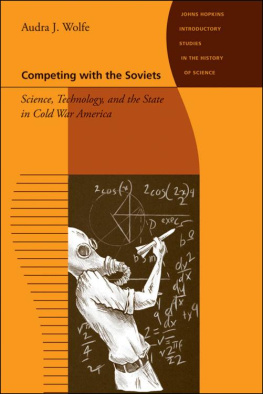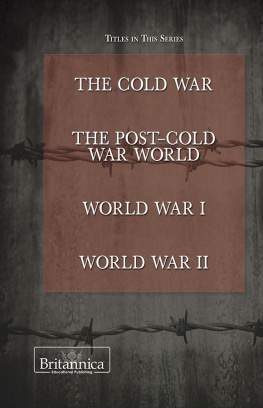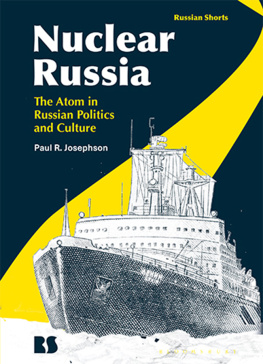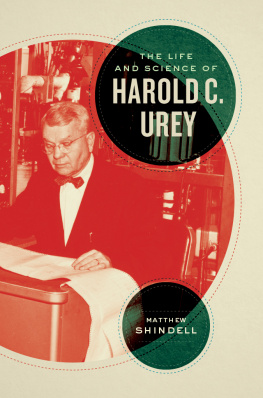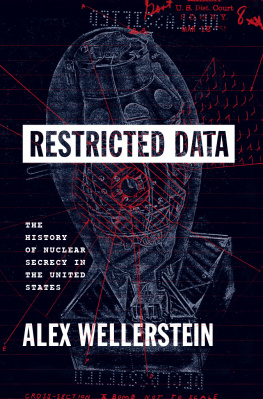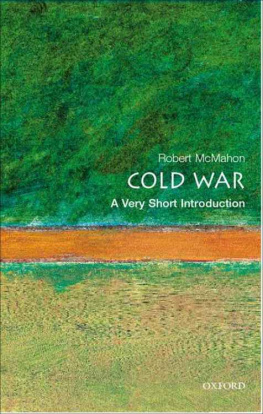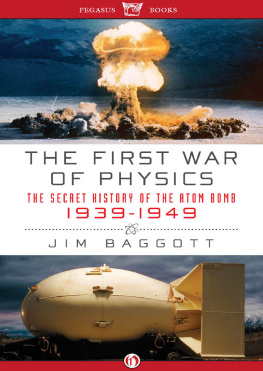COMPETING WITH THE SOVIETS
JOHNS HOPKINS
INTRODUCTORY STUDIES
IN THE HISTORY
OF SCIENCE
Mott T. Greene
and Sharon Kingsland
Series Editors
Paul Lawrence Farber, Finding Order in Nature: The Naturalist Tradition from Linnaeus to E. O. Wilson
Anita Guerrini, Experimenting with Humans and Animals: From Galen to Animal Rights
Bruce J. Hunt, Pursuing Power and Light: Technology and Physics from James Watt to Albert Einstein
Trevor H. Levere, Transforming Matter: A History of Chemistry from Alchemy to the Buckyball
Margaret J. Osler, Reconfiguring the World: Nature, God, and Human Understanding from the Middle Ages to Early Modern Europe
Paul Lawrence Farber, Mixing Races: From Scientific Racism to Modern Evolutionary Ideas
Competing with the Soviets
Science, Technology, and the State in Cold War America
Audra J. Wolfe

2013 The Johns Hopkins University Press
All rights reserved. Published 2013
Printed in the United States of America on acid-free paper
9 8 7 6 5 4 3 2 1
The Johns Hopkins University Press
2715 North Charles Street
Baltimore, Maryland 21218-4363
www.press.jhu.edu
Library of Congress Cataloging-in-Publication Data
Wolfe, Audra J.
Competing with the Soviets : science, technology, and the state in Cold War America / Audra J. Wolfe.
p. cm. (Johns Hopkins introductory series in the history of science)
Includes bibliographical references and index.
ISBN 978-1-4214-0769-2 (hdbk. : alk. paper) ISBN 978-1-4214-0771-5 (pbk. : alk. paper) ISBN 1-4214-0769-8 (hdbk. : alk. paper) ISBN 1-4214-0771-X (pbk. : alk. paper)
1. ScienceUnited StatesHistory20th century. 2. ScienceSoviet UnionHistory20th century. 3. TechnologyUnited StatesHistory 20th century. 4. TechnologySoviet UnionHistory20th century. 5. World politics19451989. 6. Cold War. I. Title.
Q127.U6W65 2013
509.7309045dc23 2012012930
A catalog record for this book is available from the British Library.
The illustration on page 51 is from Derek J. de Solla Price, Science Since Babylon (New Haven: Yale University Press, 1961).
The illustration on page 109 is from the Ava Helen and Linus Pauling Papers, Oregon State University Libraries Special Collections.
Special discounts are available for bulk purchases of this book. For more information, please contact Special Sales at 410-516-6936 or specialsales@press.jhu.edu .
The Johns Hopkins University Press uses environmentally friendly book materials, including recycled text paper that is composed of at least 30 percent postconsumer waste, whenever possible.
Contents
Abbreviations
AAAS | American Association for the Advancement of Science |
ABM | anti-ballistic missile |
AEC | Atomic Energy Commission |
APL | Applied Physics Laboratory (Johns Hopkins University) |
ARPA | Advanced Research Projects Agency (U.S. Department of Defense) |
CENIS | Center for International Studies (Massachusetts Institute of Technology) |
CIA | Central Intelligence Agency |
CNI | Committee for Nuclear Information |
CSM | command/service module |
DOD | U.S. Department of Defense |
DOE | U.S. Department of Energy |
ELDO | European Launcher Development Organization |
FAO | Food and Agriculture Organization of the United Nations |
FAS | Federation of American Scientists |
GAC | General Advisory Committee (Atomic Energy Commission) |
ICBM | intercontinental ballistic missile |
IGY | International Geophysical Year |
IIT | Indian Institute of Technology |
IRBM | intermediate-range ballistic missile |
LEM | lunar excursion module |
MIT | Massachusetts Institute of Technology |
NAS | National Academy of Sciences |
NASA | National Aeronautics and Space Administration |
NIH | National Institutes of Health |
NSF | National Science Foundation |
OEO | Office of Economic Opportunity |
ONR | Office of Naval Research |
OSRD | Office of Scientific Research and Development |
PPBS | Planning, Programming, and Budgeting System |
PSAC | Presidents Science Advisory Committee |
R&D | research and development |
RPP&E | Division of Research, Plans, Programs, and Evaluation (Office of Economic Opportunity) |
SAGE | semi-automatic ground environment |
SDC | System Development Corporation |
SDI | Strategic Defense Initiative |
TVA | Tennessee Valley Authority |
UN | United Nations |
UNESCO | United Nations Educational, Scientific, and Cultural Organization |
USAID | U.S. Agency for International Development |
COMPETING WITH THE SOVIETS
Introduction
If anyone wants a hole in the ground, physicist Edward Teller is reputed to have said in 1962, nuclear explosives can make big holes. Tellers enthusiasm for what he called nuclear engineering drove Project Plowshare, an ill-fated attempt to use atomic weaponry for peaceful purposes. Between 1957 and 1975, Teller and his colleagues spent hundreds of millions of dollars devising plans to use nuclear devices as convenient tools for mining operations, oil and gas exploration, and most famously, earthmoving projects. Bombs might be used to create a new Alaska harbor or, perhaps, a new Panama Canal. Project Plowshares advocates believed that such endeavors could be completed safely, without excessive danger to persons or the environment, and that successful nuclear construction projects might ultimately save the government a small fortune on critical infrastructure.
More than fifty years after it was initially proposed, Project Plowshare can be read as a symbol of everything that was wrong with science and technology in the Cold War. It assumed that civilian applications would follow naturally from military research. Most of its reports were classified. Its continued survival depended on the support of powerful political and scientific sponsors who were infatuated with atomic physics and obsessed with nuclear weaponry. University scientists who criticized the programs goals and assumptions lost their jobs. Its technological hubris, at least in retrospect, seems more than mildly ridiculous. And like so many other Cold War technological projects, it left environmental destruction in its wake.
But, like the Cold War itself, the real story of Project Plowshare must be told through shades of gray, not black and white. Its high-tech approach made sense at a time when scienceparticularly atomic scienceseemed to offer the best solutions to the nations problems, whether those problems might involve infrastructure or foreign policy. Nor did all of Project Plowshares research have military ends: work on the biological effects of radiation underwritten by Plowshare funds helped establish the field of systems ecology. Support for the project was neither inevitable nor unanimous; it encountered resistance from scientists, journalists, environmentalists, politicians, and Native peoples at every step of the way. Project Plowshare does indeed perfectly capture the spirit of Cold War science, but not necessarily as an exercise in technocracy run amok. Rather, it serves as a vivid illustration of both the faith that postwar Americans placed in state-sponsored science and the doubts that simmered just below the surface of this consensus.
Next page
